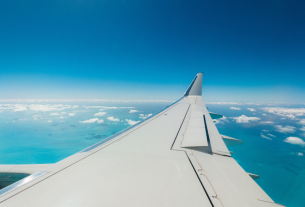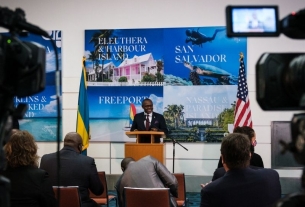The Bahamas is “unquestionably” in a strong competitive position after US federal health authorities confirmed this nation’s COVID ranking is set to be upgraded to ‘moderate’, a top hotelier said yesterday.
Robert Sands, the Bahamas Hotel and Tourism Association’s president, told Tribune Business that the upcoming US Centres for Disease Control and Prevention (CDC) revision to ‘Level 2’ signals to the tourism industry that this nation is certainly “open for business” with little to no COVID infection at this time.
Speaking after the Bahamian government confirmed the imminent upgrade, which comes just two weeks after this nation was raised from ‘Level 4’ to ‘Level 3’ or a “high” COVID infection status, he added that a further revision to ‘Level 1’ should now be the country’s target.
Praising Bahamians for their compliance with pandemic-related protocols, Mr Sands told this newspaper: “The reality is that the lower the level, or better the upgrade, the better the situation for the tourism industry and it will certainly have a positive impact on group bookings as well as general tourism.
“We must continue to exercise the protocols, encourage more people to get vaccinated, and then we will see other protocols eased or removed in due course.” With ‘Level 2’ status confirmed by the Ministry of Health, and this designation set to take effect from Monday, the BHTA chief said The Bahamas must now ensure that ‘Level 1’ or a “low” rate of COVID infection is in its sights.
“We’ve been at ‘Level 2’ before, but not for too long,” Mr Sands said. “Certainly, I look forward to us getting to an even better position. It’s the resiliency and consistency of the Bahamian people that has gotten us to this particular point.”
He added that The Bahamas would likely need to “get our cases close to zero on a regular basis” to achieve ‘Level 1’ designation from the CDC, and “already we’re not too far off”. The Ministry of Health recorded just four new cases on Wednesday, March 23, with some six persons remaining in hospital with the virus.
“I think it’s something we should work towards,” Mr Sands said of ‘Level 1’. “Being satisfied with ‘Level 2’, while it’s considerable position to be in, we should aim to be within the best category, which is ‘Level 1’. It’s important we work to be in the best position for The Bahamas, and our focus is not so much on what the competition is doing. We wish them well, and that they be upgraded as well, because a COVID-free region is also very important.”
While only a small minority of countries currently enjoy ‘Level 2’ status with the CDC, Mr Sands said The Bahamas’ forthcoming upgrade means it is “absolutely, unquestionably in an extremely competitive position”.
He added: “It sheds a light on The Bahamas that we are certainly open for business, that we have taken the COVID protocols very seriously, which is indicative of the very low amount of cases we currently have, and welcome all travellers to come to The Bahamas.”
Dr Michael Darville, in the Ministry of Health statement affirming the ‘Level 2’ ranking, said: “We all hold the key to our success. Free testing is available for anyone who wishes to know their COVID-19 status. And getting vaccinated remains the scientifically-proven best way of protecting ourselves and our loved ones.”
The International Monetary Fund (IMF), in its Article IV statement on The Bahamas this week, urged the country to focus on increasing its COVID vaccination rates to protect against future outbreaks and disruption to the tourism-driven economy. “The policy priorities ahead are to safeguard the recovery, preserve debt sustainability and promote sustained and inclusive growth,” it added.
“First and foremost, this will require vaccinating the population as swiftly as possible. As the pandemic’s impact recedes, policies should focus on tackling long-standing challenges by improving the structure of revenues and spending, rebuilding fiscal space, and making the economy more resilient to the effects of climate change…..
“A re-intensification of the pandemic cannot be discarded. With about 40 percent of the population fully vaccinated, the emergence of new COVID-19 variants could prolong the pandemic and induce renewed economic disruptions. Alternatively, rising cases in source countries could dissuade travel and lead to a renewed decline in tourism.”
Some 163,526 persons are now fully vaccinated out of a 400,000-strong population, and Mr Sands agreed then with the IMF’s assertion that The Bahamas needs to increase vaccination rates beyond the 40-50 percent mark to the 70-80 percent required for so-called “herd immunity”.
By Neil Hartnell- Tribune Business Editor



